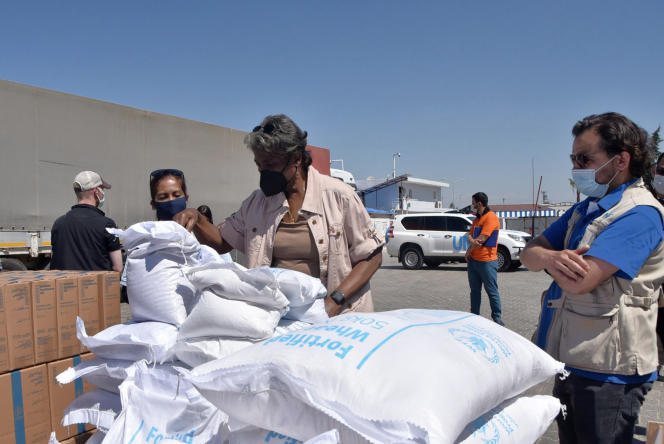In a crucial development, the Syrian government has given its consent to the United Nations (UN) to utilize a border crossing from Turkey for an additional six months, allowing the delivery of aid to opposition-held northwest Syria. This decision comes after the UN Security Council failed to renew its authorization for the operation, creating uncertainty regarding the continuation of life-saving support to millions of people.
UN Aid Deliveries Must Be Coordinated with Syrian Government
Following the failure of the Security Council to reach an agreement on expanding the assistance route, Syria’s UN Ambassador, Bassam Sabbagh, highlighted the need for UN relief deliveries to be carried out “in full cooperation and coordination with the Syrian Government.” Ambassador Sabbagh conveyed the government’s requirement for the continuation of the humanitarian operation in a letter to the Security Council.
Russia’s Role in Blocking Extension Heightens Uncertainty
Russia played a significant role in the recent turn of events by blocking a nine-month extension of the crucial Syria aid route at the UN Security Council. Instead, Russia proposed a six-month extension, which was also rejected by the Security Council. The voting outcome saw only Russia and China in favor, while the United States, the United Kingdom, and France voted against the proposal. This deadlock has raised concerns about the fate of the aid mechanism and the well-being of millions of Syrians.
The Expired Agreement and Cross-Border Challenges
The UN-brokered agreement, which enables the overland delivery of aid from Turkey to rebel-held regions of Syria, expired on Monday, intensifying the urgency for renewal. Negotiations were underway in the Security Council to allow the UN operation to continue using the Bab al-Hawa crossing for 12 months, without requiring authorization from the Syrian government. However, Russia, supporting the Syrian government and having participated in the war in Syria, presented a rival text proposing a six-month extension, leading to further disagreements.
The denial of a longer extension for the aid route has raised concerns among Syrians residing in opposition-controlled areas, as the short-term renewals make them susceptible to sudden disruptions in life-saving aid. The Bab al-Hawa crossing serves as a vital channel, catering to over 80 percent of the necessities for individuals in rebel-controlled regions, ranging from basic essentials like food, water, and medicine to everyday items like diapers and blankets. Despite the Syrian government’s consistent objections to aid deliveries, the approval granted for another six months offer a glimmer of hope for the millions of Syrians reliant on international assistance.















